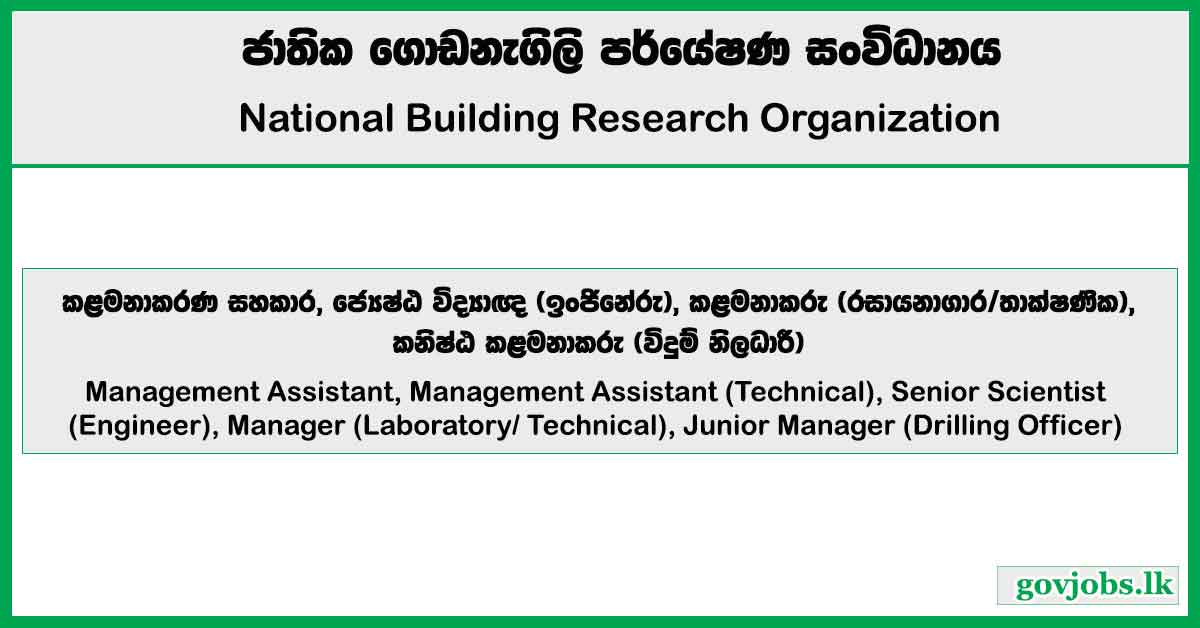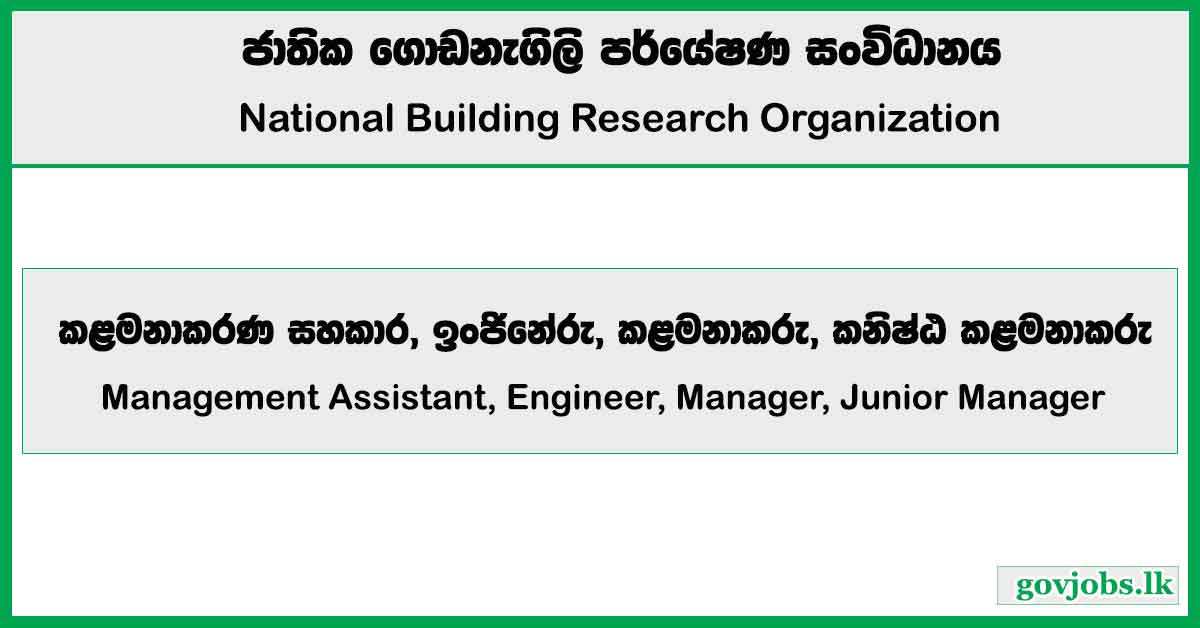
Project Engineer, Accounts Assistant (BCRIP) – Ministry of Transport, Highways, Ports and Civil Aviation Job Vacancies 2025
Ministry of Transport, Highways, Ports and Civil Aviation invites applications …
Government Job Vacancies, Courses, Exam Results, Past Papers

Ministry of Transport, Highways, Ports and Civil Aviation invites applications …

Ministry of Transport, Highways, Ports and Civil Aviation invites applications …

Information Technology Resource Development Authority WP invites applications for the …

National Building Research Organization invites applications for the post of …

Sri Lanka Transport Board (SLTB/CTB) invites applications for the post …

Calling Applications for Recruitment to the Student Nursing Training Course (Year …

Sri Lanka Sustainable Energy Authority invites applications for the post …

State Trading Corporation invites applications for the post of Deputy …

State Trading Corporation invites applications for the post of Manager, …

National Building Research Organisation for the post of Management Assistant, …